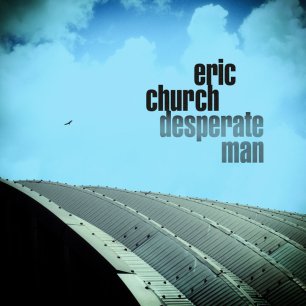Amanda’s Radio Single Round-Up — Part 1
Tenille Arts, “I Hate This”
The debut single from Canadian-born Reviver Records recording artist Tenille Arts is definitely a solid one. “I Hate This” blends a voice reminiscent of Carly Pearce with a heavily acoustic-based production, complete with prominent dobro. Lyrically, it’s very relatable: the song is describing a relationship in which the couple is taking a break, and it’s nearly killing the narrator, as she still loves her boyfriend and hates this period of separation. The softer production and solemn emotional content of the song really make “I Hate This” a great song, and a great choice for a debut single. Of course, it probably won’t be a mainstream hit as country radio unfortunately doesn’t take too kindly to females and their commercial success in the format, but please don’t let their closed-mindedness stop you from giving this one a listen. It truly is as good of a song as you’re going to get from the mainstream these days. I can’t wait to hear more from Arts.
GRADE: 8/10
Tenille Townes, “Somebody’s Daughter”
Another Tenille, another debut single. This time around, it comes from Sony Nashville’s Tenille Townes. “Somebody’s Daughter” is the narrator’s account of her observation of a homeless young woman. The lyrics are very heartfelt and strong, encouraging the listener to take compassion on the young woman, as she is “somebody’s sister, somebody’s best friend, somebody’s high school best friend, somebody’s daughter”. Townes reminds listeners that everyone has a story, and the narrator of the song wonders about the subject of the song. While the lyrical content is solid, the production is a bit of an issue. Maybe it’s just me, but the production of this song seems a bit loud and cluttered, and takes away from the message and story of the song. Nevertheless, it’s still solid and still worth checking out.
GRADE: 7/10
Tim McGraw, “Neon Church”
Tim McGraw is back. On the heels of his awesome Damn Country Music, and releasing a duets album with his superstar wife, Faith Hill, Tim has released a new single, the lead single from his upcoming album, to country radio. For starters, the lyrical quality of this song is stellar. The narrator of this song is completely heartbroken, and compares the bar he is sitting at to a church setting. Quite the juxtaposition, and at first glance, McGraw’s song reminded me of Maren Morris’s “My Church”, a song I really enjoyed. The lyrics are very descriptive and interesting, but the production is where this song really falls flat. Much like the aforementioned “Somebody’s Daughter”, the production sounds clunky and cluttered, and to add, really distorted sounding. Whoever produced this should have their producer title taken away from them immediately. This was a great idea for a song marred by terrible production. However, it is still above average and will be one of the better songs at country radio currently.
GRADE: 6.5/10
https://m.youtube.com/watch?v=vIQUfinukh4
William Michael Morgan, “Tonight Girl”
Oh boy. I really wish I had better things to say about this. This is the review I thought I’d never have to write, and after hearing this song, this was the review I dreaded writing. Morgan heavily impressed me with his 2016 debut, Vinyl, which was full of awesome traditional country goodness. Vinyl was hands down my favorite album of that year, and it is still on repeat for me. Seriously, if you have not yet checked out “Missing”, “Lonesomeville”, “Cheap Cologne”, and “I Know Who He Is” (warning, you will need to break out the tissues for that last one), you are missing out on some killer music, and you need to give them a listen as soon as possible. “Lonesomeville” was far and away my favorite song of 2016. Morgan truly set the bar high for himself with those four songs, and with the album in general. Friday marked the release of the lead single of his upcoming sophomore album, so did he live up to his potential? Not even close. This song sounds like literally every other boring male-led generic song on country radio currently. Morgan is capable of, and can do so much better than this, and everyone knows that. Hopefully this is the worst song on the album. Also, what the hell is up with that annoying whistle sound throughout the track? I refuse to believe this is the same guy who recorded “Lonesomeville”. Where is the steel guitar? Where is the fiddle? Where are the heartfelt lyrics we witnessed on his debut album? None of them are here. This is just another boring, pop-ish, dime-a-dozen, generic song. The lyrics are generic, and the production just isn’t good. Morgan is capable of so much more. He could be the next generation’s George Strait, when he is being himself and staying true to his style of music, instead of chasing radio trends. If this keeps up, looks like Jon Pardi will have to fill that role. Even Pardi’s worst songs (cough cough “Dirt on My Boots”) maintain some sort of country element. It truly saddens me that I have to give him this kind of feedback, and this score. I hope for the rest of the album, he will stay true to himself and do what he does best, which is record kick-ass neotraditional country. The last thing we need is another Dustin Lynch.
GRADE: 3/10
Tyler Rich, “The Difference”
Who? Speaking of sounding like every generic male on country radio, here’s a prime example. The dunderheaded folks operating mainstream country radio would like to present you with the 75th example of a faceless generic pretty-boy male singer singing lightweight, boring pop bullshit, because you know, nobody wants to hear actual country singers, female artists, or just artists who prefer substance over style in general. All jokes aside, if you’ve heard one, you’ve heard them all. The one thing that sets this song apart from all soundalikes in the worst way is the horrid lyric in the first verse: “I want you to be my hottie riding shottie, I don’t want nobody’s body but your body, babe”. Whoever thought “hottie riding shottie” was a good idea for a lyric in a song should have their songwriting privileges immediately taken away. This is another creative failure that will most likely be a hit at country radio, unfortunately.
GRADE: 0/10

